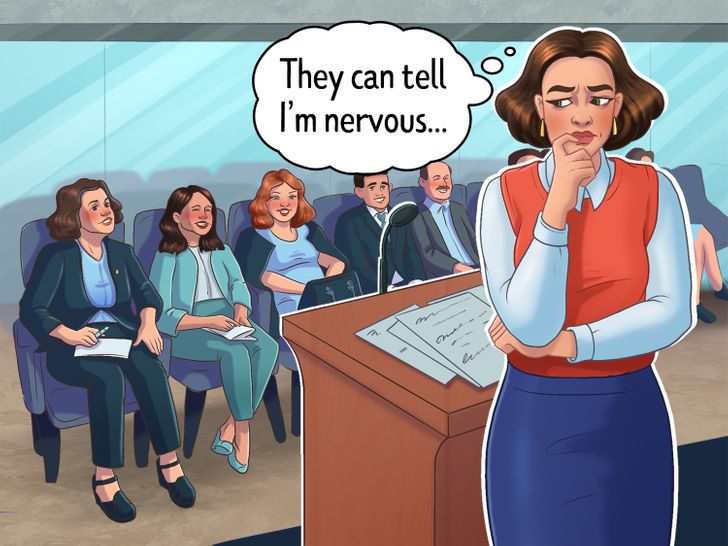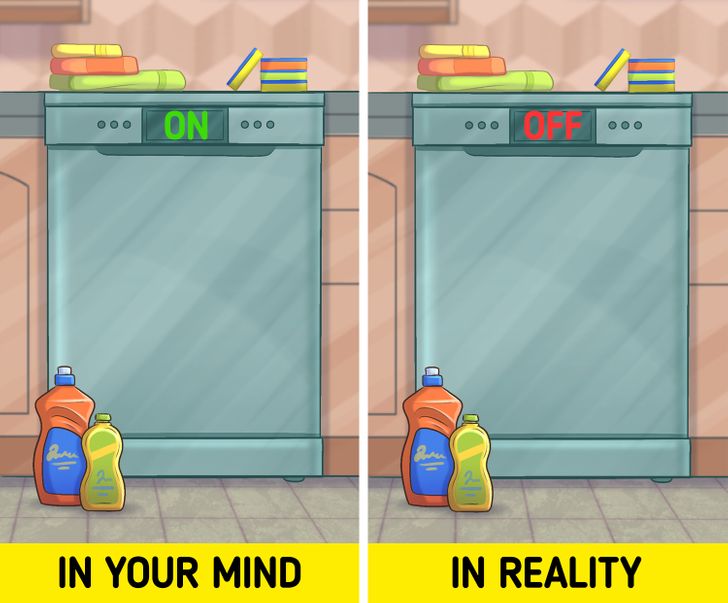You may have heard that humans only use 10% of the brain, but that’s actually a myth. Most of our brain is almost always active, even during sleep. But it still fools us, even if we don’t realize it.
With that in mind, we have researched the science behind some of these tricks our brains sometimes play on us and have found information worth sharing with our readers.
Most Common and Weird Mind Tricks Your Brain Plays
Barnum Effect

The first psychological phenomenon is called the Barnum effect, also known as the Forer effect. This happens when people believe that personality descriptions apply specifically to them, although in reality, they are full of generic information that applies to almost everyone or that everyone can identify with.
Good examples of this are fortune cookies, horoscopes, and online personality tests.
Illusion Of Transparency

When we feel strong emotions, we can sometimes think that it is obvious to others, especially those who know us well. The difference between our experience and what other people perceive is known as the illusion of transparency.
This illusion can make people who are eager to speak in public believe that their nerves will be noticed by other people, but in reality, no one can know.
Freudian Slips

Have you ever wanted to say one thing, but instead said something completely different? This usually happens when you speak, but it can also happen when you write or typing. This is called slippage or Freudian parapraxis; or more commonly, a classic slip of the tongue.
According to the famous neurologist and founder of psychoanalysis, Sigmund Freud, parts of the unconscious mind sometimes slip into conscious behavior, and this causes you to say things that you did not necessarily mean.
For example, a child who calls their teacher “father” is simply going from spending most days with their father to spending most of the day with the teacher.
Or when a woman might want to tell her friend that she is in love with Daniel, but instead of saying Daniel, she might say her ex-boyfriend’s name by mistake. Because of this, the friend may assume that she is still in love with her ex-boyfriend.
Availability Heuristic

The availability heuristic, or availability bias, is a mental shortcut based on quick examples that come to mind when analyzing a particular issue, problem, or decision.
This can often come into play when making decisions. Therefore, after seeing a lot of news about car theft, you can conclude that car theft is much more common than it actually is in your area.
False Memory

Our memory is more fragile and vulnerable to influences than we think. It is not just a recording of something that happened in the past, the things we remember can change depending on how and when we remember them.
This is how false memories happen. A false memory is something that seems real to you but is created by your mind.
An example: believing that you turned on the dishwasher before leaving the house, only to come back to find that you actually didn’t.
Ironic Process Theory

Most of us have probably had thoughts that we just didn’t want to have, perhaps an unfortunate event or an embarrassing moment. Also, it seems that the more we try to suppress these thoughts, the more they come to mind.
There is a real name for this, known as the ironic process theory. A classic example is if we tell ourselves not to think of a white bear or a blue cat, that is probably what comes to mind.
Have you or someone you know experienced any of these phenomena?









